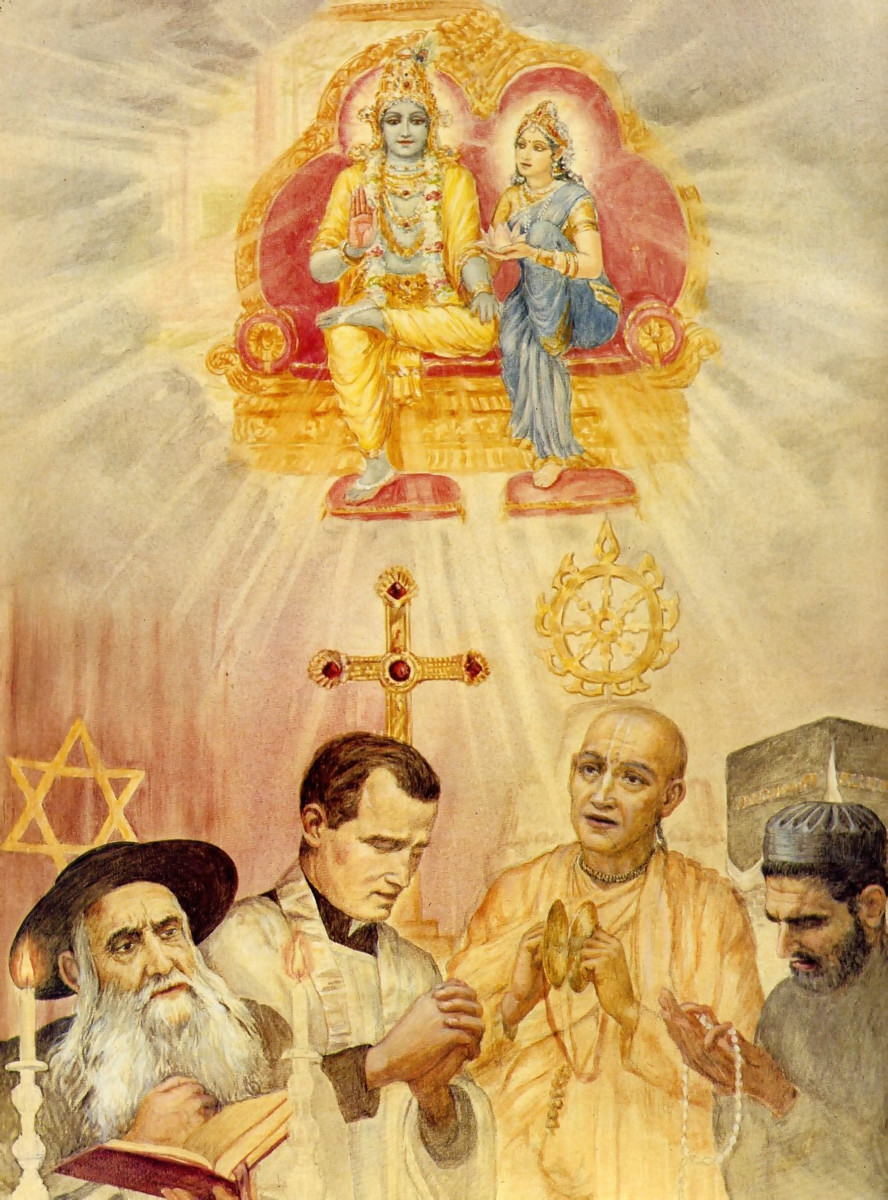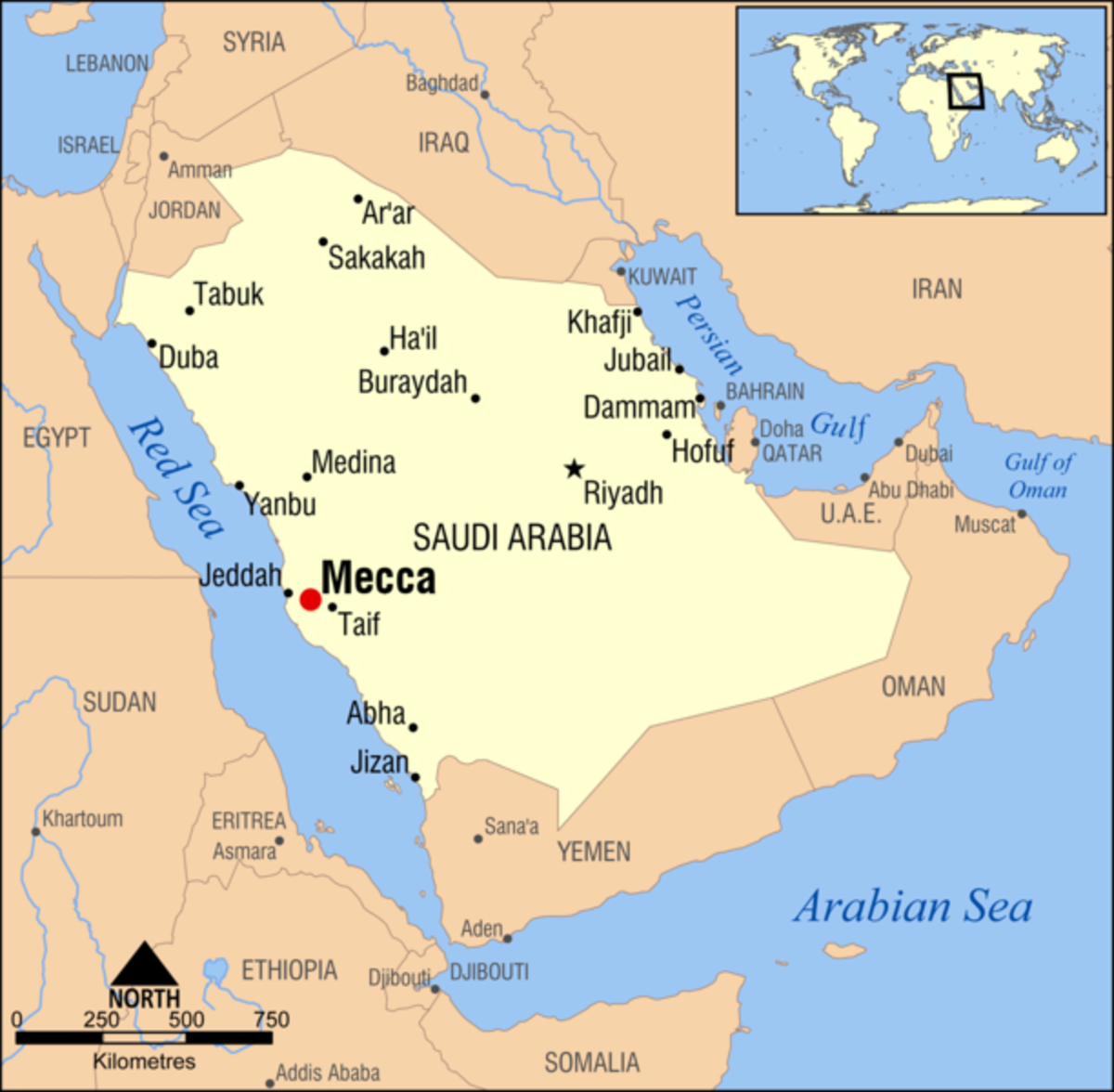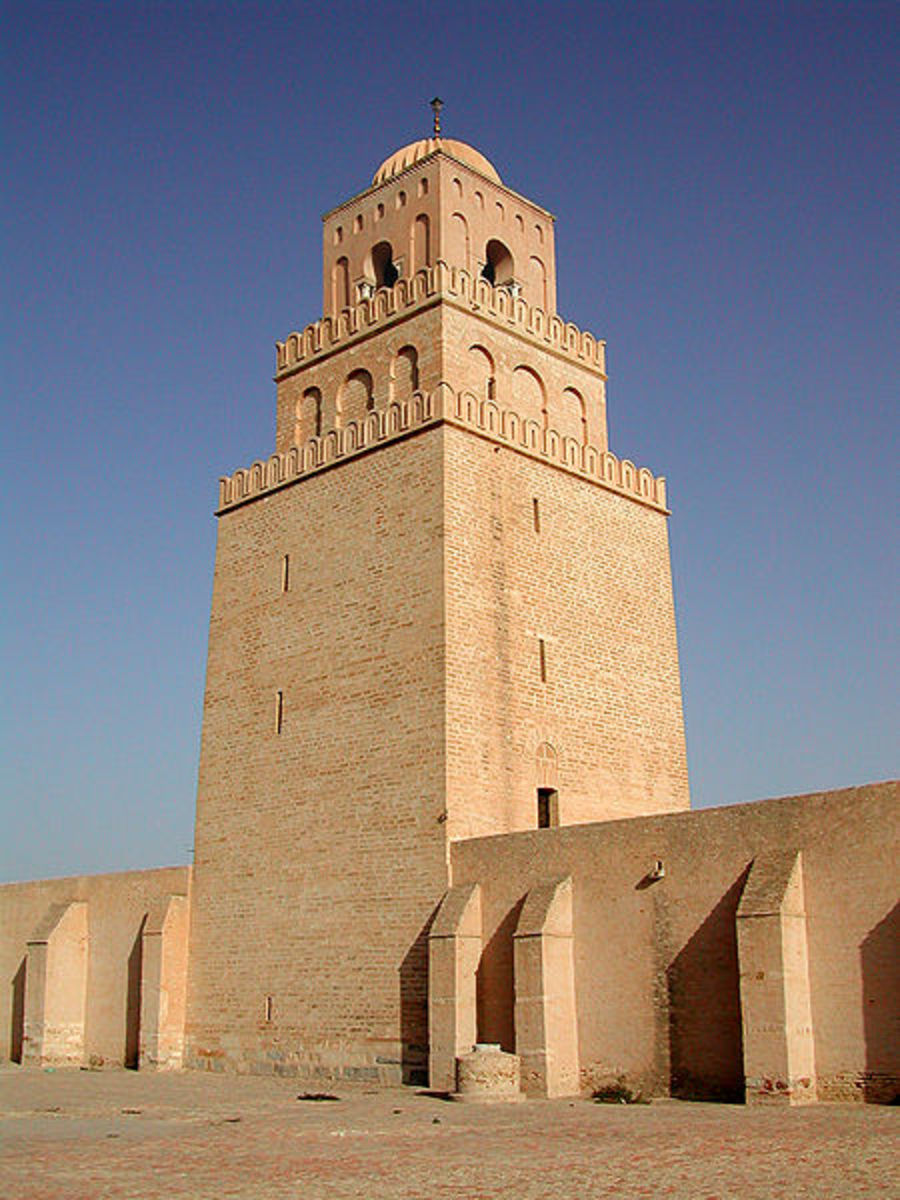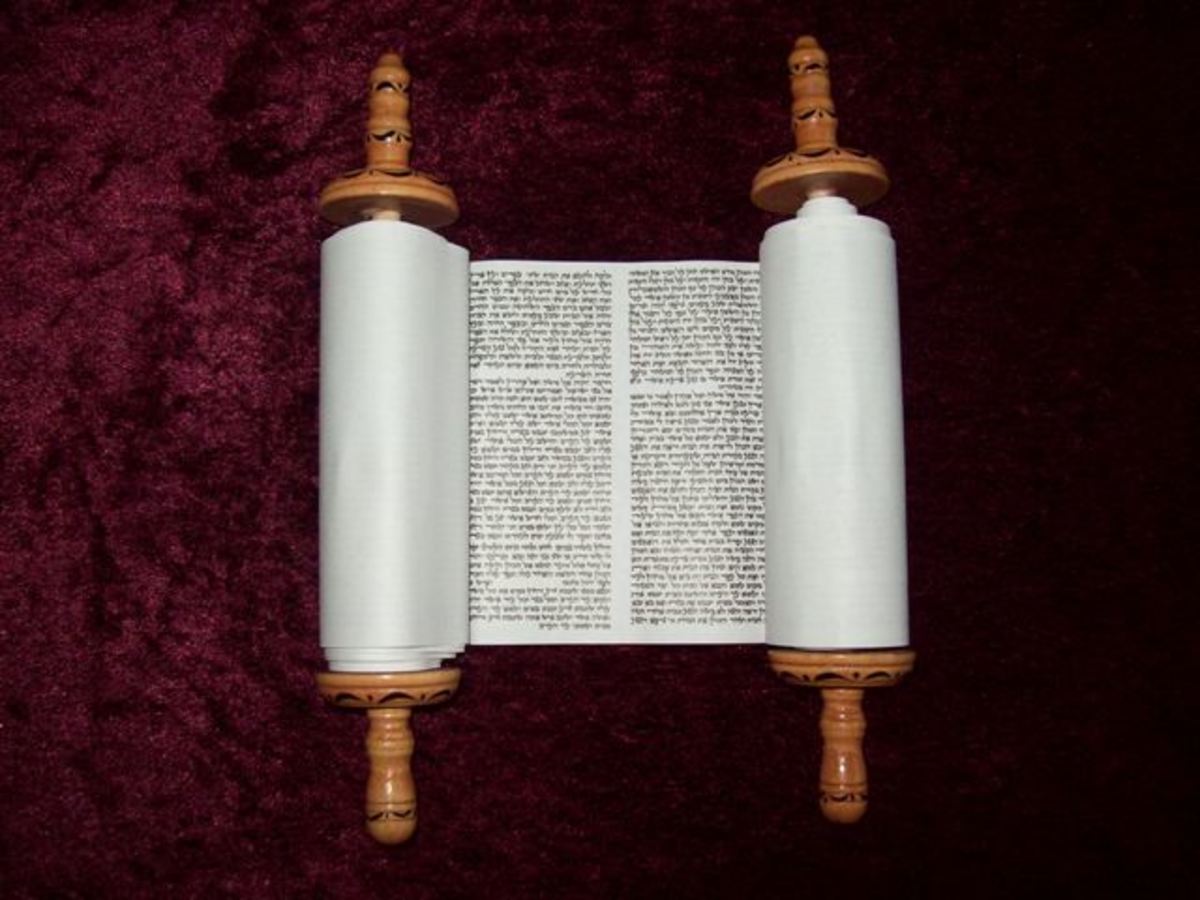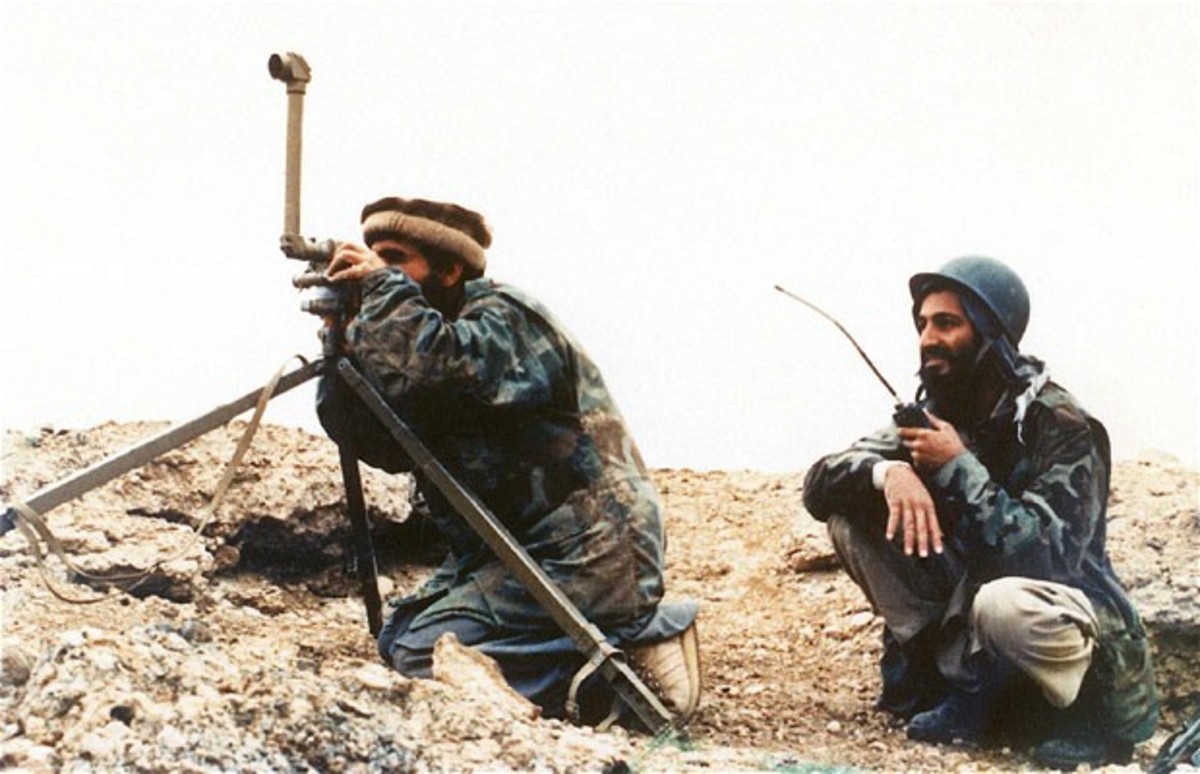No Successor
Tomb of Muhammad in Medina
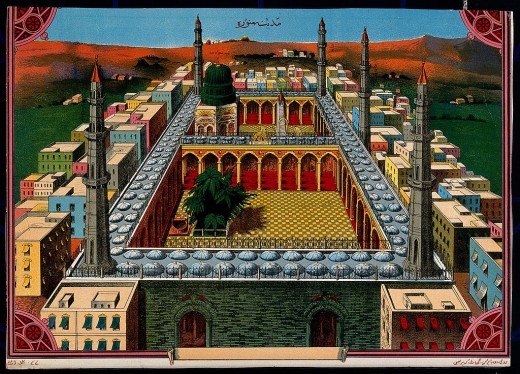
No One in Charge
I read that there is a work comprised of thirty-nine volumes on this very same theme. That is true scholarship, entailing a lifetime of research and deep, reflective thought. But there is also a need for the average citizen to reach an understanding about what his or her country is at the moment standing up to. It has taken years for breakaway groups to form into terroristic entities whose horrifying exploits saturate our mini-screens. Yes, we are fighting terrorism. We intend to wipe it out. But in the meantime, who are its practitioners? How did the jihadists of 2015 come to manage high finance, wield sophisticated weaponry, and shoot videos that get worldwide attention? Either way, with guns or cameras, they are not pushovers. They are also not easily summed up as "the bad guys" or a lost generation of young men with face masks who have turned to violence to escape oblivion. How they flock to fanatics! Like-minded clerics readily feed their youthful pride, anger, anguish, and ignorance. The question looms large. Who are these people? What do we have to do to re-establish a functional, non-violent co-existence? To do so, it seems imperative to call to mind the very origin of Muslims, who once took to the sword the way their descendants take to the AK-47.
The Shia-Sunni split over the legacy of Muhammad to the Muslim people appears to indicate that the religion was destined to survive the death of the Prophet without a clear sense of direction. Born into the Sixth Century, Muhammad died in the Seventh. By today's standards, living into his Sixties, his passing was not especially noteworthy. But within a relatively short space of time, his impact was greater than any known measurement. To imagine another Muhammad to take the place of the original would be like another Christ to carry on after His ascension. Yet, in both cases, standards were set toward which true believers with above-average abilities aspired. Also, in both cases, the strongest movement was forward, despite obstacles. What would Muslims have become without Muhammad? Who would Christians be without Christ? We will never know. Suppositions are plain absurdities. Nonetheless, comparisons at least provide a point of reference for two unique situations that both gradually gave way to dissension and, lamentably, hostilities.
Before Islam
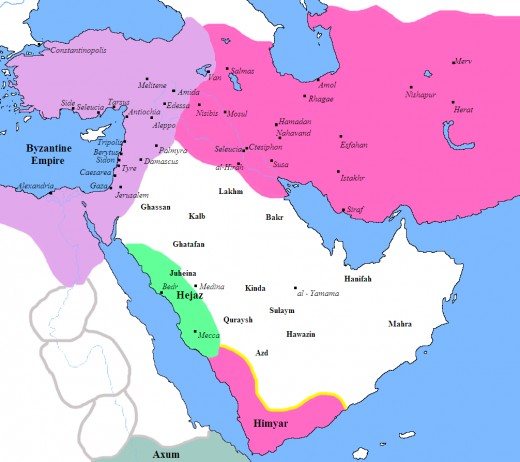
Remembrance Of a Hyper-Glorified Past
This aspect of the story will always work 100% against us. Since we do not revere Muhammad, except for a small segment of our population, it is unlikely that diplomatic communication will be either informed or positive. All the same, remedies are available. One can, for instance, gain perspective and establish a vantage point. One cannot help but observe that today's fighting in the Middle East preserves a long tradition. True enough, the religion founded by Muhammad was enlarged upon by the sword. Actually, there was little choice in the matter. Not only did Muslims have to fight for their own lives, but at the same time interact with two Empires, the Persian and Byzantine, at peace with one another. It is quite stunning to read how well the early Muslims adapted themselves to military matters. They confronted disparate situations against better equipped armies. It also pays to remember that Muhammad was very much loved by his supporters, a permanent obsession that obtains to this very day.
The more one sinks into the historical underpinnings of Muhammad's mission, actions, life, and deeds, the more it becomes clear that there are these great moments in history that cannot be sustained. There is really nothing extraordinarily different about the Shia-Sunni schism from any other that might be summoned to mind. Some Muslims say that Ali was verbally commissioned. Words to this effect have been passed down. It was only logical. He was both nephew and son-in-law to Muhammad. Others prefer Aisha, another first generation Muslim, and the Prophet's virgin bride and faithful wife. She was, according to the opposing logic, the proper initiator of the truer line of succession. It only gets worse, it seems. Yet, within a relatively short span of time, bridging the 6th and 7th centuries, Islam goes from nothing to greatness. Muhammad's failure to out-and-out name a successor actually served to keep his feuding followers fired up -- whether he intended to do so or not.
Timbuktu, the Salt Trade, and Islam

Changes and the Modern Mentality
Generally speaking, we like changes. They are designed to address a defect, then introduce an improvement. But what is the reality? At first blush, it would seem that fundamentalism, the latest and greatest change, is more disease than remedy. Ayatollahs brought it back with a vengeance, plunging much of the civilized world into backwardness. In Timbuktu (2014), we see how a contingent of well-armed militants enforce a mindless puritanical interpretation of the Koran on a simple, helpless community. One by one, villagers are whipped, bullied, and executed for playing music, dressing wrong, or being flirtatious. Watching this movie, nominated for best foreign film at the Academy Awards, is like witnessing a recreation of Hell on Earth. Nevertheless, I would not single out Islam for having led the way or singlehandedly transformed the world not for better but worse; many other so-called established denominations have also contributed to turning good into bad, then bad into worse.
Still, if one delves into 7th century history, during which time Muslims captured the multitudes, the subdued always fared better if they embraced Islam and let it go at that. Others were not necessarily beheaded, sold into slavery, or heavily taxed so as to retain their condoned religious beliefs. These things happened but on a lesser scale. Thus, one must side with religious liberty. It might be called Satanic; it might, at times, even noticeably lean in that direction. But there is nothing compelling, instructive, awe-inspiring, or redeeming about forcing people into a single hierarchical religious structure, especially if their allegiance hinges on a bowl of food, money, or life itself. No religion combined with terrorism has a legitimate claim on any soul, much less nations. The greater point is that in collusion with terrorism, no religion is itself. It gets complicated. But to simplify, the target remains terrorism, in whatever shape and form, not Islam or any other safe-haven catch-phrase.
16th Century Copy of 622 Document
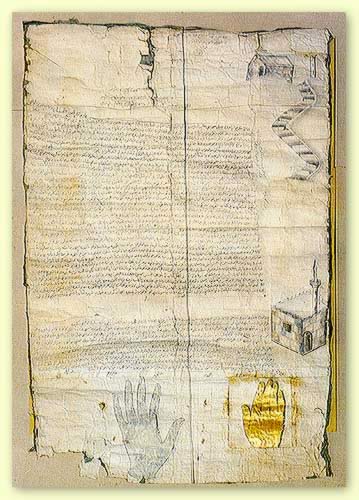
Cults of Personality
Unquestionably there is such a thing as personal style. It is not necessarily "stylish", as in the case presented pictorially. In this document, written by a scribe, the Prophet gives his assurance to the monks of Mt. Sinai that they will be protected and able to perform their rituals as usual. The document is also known by another name, having to do with St. Catherine's Monastery, which, it is assumed, is one and the same. The main point is that coexistence favored Muslim domination over the meeker Christian. Today's administration might regard its talks with Iran in a similar vein, a peaceful, American resolution to politico-religious points of contention. But to do so is a mistake. First, no account, to my knowledge, has been taken of the multiple ethnicities that dwell in close quarters with one another, including Arabs and Persians. Second, no distinction has been made, publicly, between Shia and Sunni, the underlying substance of this hub. Third, Persian Islam can alternately side with whomever it chooses, not ruling out Israel, secretly, or, also, on the sly, an anti-American Christian contingent. It depends upon the circumstances. We are prisoners of our own prejudices. In other words, in the Middle East, over time, Iran is likely to rule the roost and gain the upper hand. Its will will not be undermined by the passing influence of a handful of intruders who might take up temporary residence. In our favor, however, is the fact that charismatic Iranian leaders are nothing like their more capable, ancient predecessors.
The History Channel Version
Western Comedy and Drama
It is difficult to solve this riddle. Few comics working today in the West project a sense of obligation to country or put caution first when it comes to the feelings of Muslims. That our enemies quite naturally lump us together is a different matter. The resultant chaos is justifiable cause for complaint -- on both sides. Islamicists hate Western ridicule. In America, everybody and everything is fair game. Comics get away with plenty, so ingrained is comedy, or its tolerance, in the American psyche. As a result, a homegrown precedent has already been established -- only Muslims are not forgiving Christians. Muslims are not so inured to a comedic culture that transcends their own. They do not regularly trade barbs, apologize, shake hands, and embrace. They consider adoration for Muhammad sacred, neither profane nor negotiable. It really boils down to knowledge and education. We do not know Muhammad or how his memory interfaces with his ardent believers. Not to honor him is one thing; to withhold any respect at all is to enrage the entire Muslim populattion. Point blank, to maintain a rather immature national or international position, just for laughs, means Christians will not be taken seriously either.
Americans, the English, as well as the French, etc., love the meetings of great minds in a ruling elite that do not test the shoulders of a single man or woman. Like it or not, much of the world has nothing but disdain for either Democracy or Parliamentarianism. In a work of fiction by Gabriel García Márquez, the people of a nation wait attentively outside a palace in which their beloved dictator completes an afternoon assignation. Are they crazy? No, they are neither opinionated nor affiliated with partisan politics. The dictator makes decisions for them. They refuse to interfere with his personal habits. We are all such fools anyways when it comes to candidates. Should it be Peter rather than Paul or Paul instead of Peter? Introduce the subject of religion, however, and the idea of a solitary figure towering over all is by no means fantastic. No God but God, no Prophet after Muhammad, Jesus is Christ. . . . These are a few examples from someone who is not a quick study when it comes to the countless, multiple religions spread over the globe. It is still a harsh, disputatious world. I have only relatively recently begun to delve into the age-old issue of Islamic succession. Already, I sense that throughout most of the Levant, Christ is not Lord and Savior to Muslims, nor Judaism considered a major religion. As to comedy and drama -- no one, anywhere, seems qualified to draw a definitive line.
The Early Caliphate
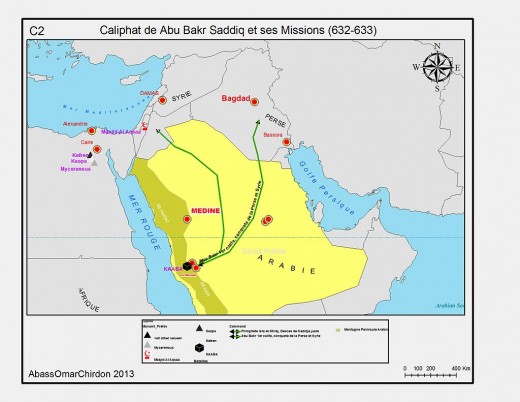
Abu Bakr Dies
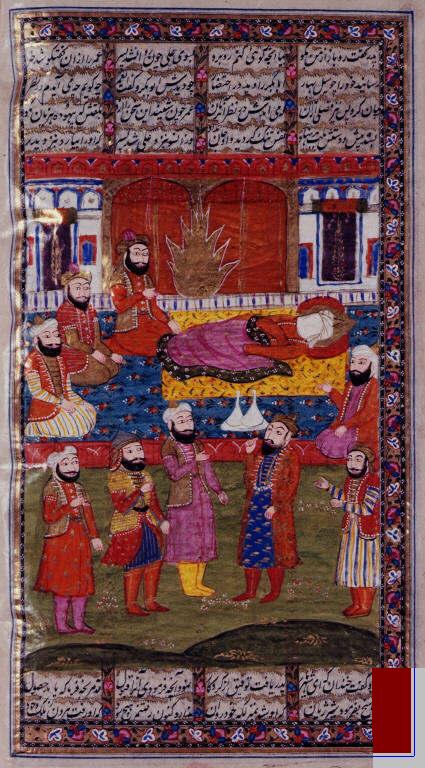
Muhammad Dies
Things start to get interesting. All Muhammad did, ceremonially, to affirm leadership, was to make a solemn vow at either Medina or Mecca to a handful of the faithful. Now, so much else comes into play that it is hard to discern what is religious, political, social, cultural, or merely psychological. Remarks are made upon how little the Prophet left by way of material wealth. Simply put, there was next to nothing. My literary source indicates that as soon as the Prophet departed, Abu Bakr organized Muslims against the leading tribes of Arabia. Despite his age, he proved effective. His name was slightly altered so as to include the fact that he was the father of Aisha, the start of a novel pattern to names that already varied, depending upon information furnished. It occurs to the contemporary reader that the fighting of the 7th century was not unlike that of the 21st. The older militants used swords and spears. Still, they very savagely employed their obsolescent weapons. In the early dawn, Muslims listened to learn if nearby tribes were calling the menfolk to prayer. If not, they invaded, killed, plundered, and turned captives into slaves. Yes, the temptation to liken today's militias to yesterday's is, valid or not, unavoidable.
My reservations about comparisons devolve solely upon speculation. I can only state an irrational feeling that the first generation Muslims were more the genuine article than today's cheap imitators. Muslims did not create war in the Middle East. Tribes were already fiercely engaged in this dubious pursuit. The Old Testament reports armed conflicts dating at least a thousand years back from the time of Muhammad. Still, there is no videotape, only written fragments, such as fatherly reprimands to sons, who dishonorably survived a battle in which a relative was slaughtered. Fighting remains a peculiar calling. It is hard not to notice from regular broadcasts alone how the entire planet, but especially the Middle East, is in a state of preparation for a particular kind of war that may or may not come about. All one can say is that if it happens, it will be real, severe, and probably unaffected by commentary on the six o'clock news.
Umar Enters Jerusalem
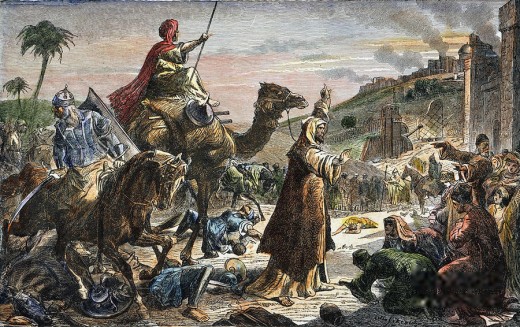
Umar Rules
It seems ridiculous on one hand to re-hash the succession of holders of power of the young Caliphate and its first Caliphs. But on the other, they are matters still being debated, the various arguments never seeming to age. So, before Abu Bakr dies, not much longer than two years after taking command, he makes Umar his successor. He does so without so much as citing a chapter and verse in the Koran. Mention is made of itjahid, loosely translated as individual thinking, a concept mostly internal, that could, legally if not spiritually, lead believers to a righteous action. Unfortunately, there is no Gibbon for the Western mind, filled with questions about a region just outside his or her intellectual view. In other words, there is no Decline and Fall from which to plot the key events over time in addition to the major players in the game that really was not a game at all.
The world did not freeze as the Caliphate grew by fits and starts. Heraclius sat upon the Eastern throne of the Roman Empire, dealing with a Christian schism within his own nation, already over ten centuries old, if the Republic is included. It is not completely known if Heraclius considered Muslims barbarians or not. He kept them at bay but not without significant losses in Syria. The reigning Caliph had by now developed means to deal with victory, leveling taxes, for instance, on Christians and Jews. Poll taxes, as they were called, were greatly despised, but gave official recognition to a few non-Muslim religions. How paganism continued well into the Christian era until Muhammad put a stop to it is another story.
This hub could go on and on. Suffice it to say, however, that under Umar, not only were victories achieved, but astounding victories. From the sands of Arabia, Islam went to the Mediterranean Sea, Syria, and Iraq. It also went to Egypt and the Indian Ocean. It did not do so without setbacks and defeats. But its remarkable introduction into the lives of converts and others is unprecedented, given the fact that it did not even exist within the lifetimes of many still living. The Koran itself had not yet been written down. Perhaps today's psychopathic militants think they are reincarnations of their 7th century ancestors or progenitors. I would like to point out their error, but I am too unschooled and unrefined. Also, like many of my contemporaries, I would like to think that our conflicts have more to do with economics and power than religion, or, to be blunter, obscurities. If right, the war toward which we are headed, should it comes to pass, will have more to do with blood itself than money or prestige.
Muslim Unity Lost
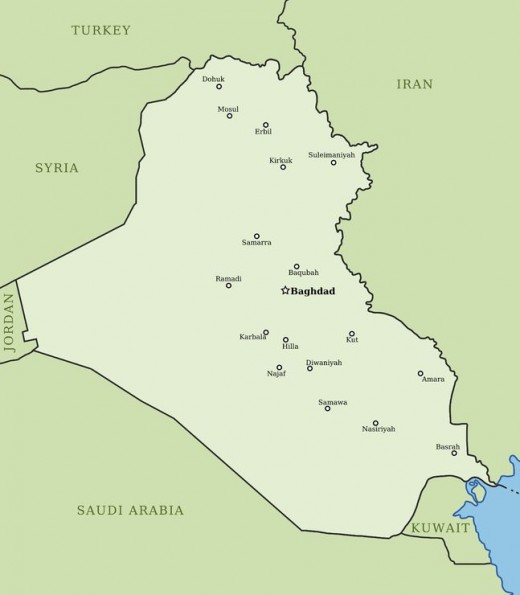
More Caliphs/More Trouble
Umar, too, dies, stabbed to death at prayer. His military achievements were nothing short of outstanding, but they are appreciated more by Sunnis than Shias. The next Caliph, Uthman, had a predilection for public works apart from military exploits. In brief, he did not enjoy the front line. Well, these were only human beings after all, even if they changed the world. The main point towards which I'm driving is that there is still no successor -- not divinely appointed, assuming, as I am willing, that Muhammad was a true Messenger. Without him, it is difficult to imagine life on earth, then or now. By 660 AD, Islam had miraculously expanded beyond Egypt and the Mediterranean. It pushed the Byzantine Empire northward. Its history is rich, lavish, ornate, fascinating, and worth one's while. But as to its immediate or long term future, I could not venture a guess.
Eventually, Ali becomes Caliph. He was the rightful heir all along, according to the Shia. It would not do us much good to take sides in this argument. It has been going on for over a dozen centuries. ISIS is basically Sunni, but to fight the Sunni would be unproductive. Many of us still remember the long, drawn-out war between Iraq and Iran. It contained the same schismatic elements. For what? It is terrorism alone that has to be stamped out, not its fake attachment to legitimate rule. At present, it remains to be seen what progress can be made at a negotiating table rather than dangerous forces in the air, from the sea, and on the ground. No doubt talk is worth a try. It buys time. Maybe in the interim an inspired individual can again make a big difference where whole nations and international organizations totally failed.
United Nations Building
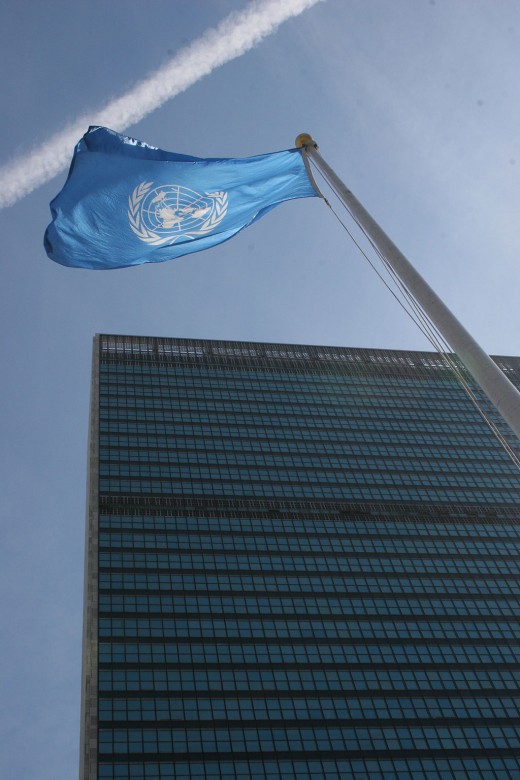
- Amazon.com: The Heirs of MuhammadIslam's First Century and the Origins of the Sunni-Shia Spl
Amazon.com: The Heirs of MuhammadIslam's First Century and the Origins of the Sunni-Shia Spl: Islam's First Century and the Origins of the Sunni-Shia Split (9781590200223): Barnaby Rogerson: Books
- After the Prophet: The Epic Story of the Shia-Sunni Split in Islam: Lesley Hazleton: 9780385523943:
After the Prophet: The Epic Story of the Shia-Sunni Split in Islam [Lesley Hazleton] on Amazon.com. *FREE* shipping on qualifying offers. In this gripping narrative history, Lesley Hazleton tells the tragic story at the heart of the ongoing rivalry b

